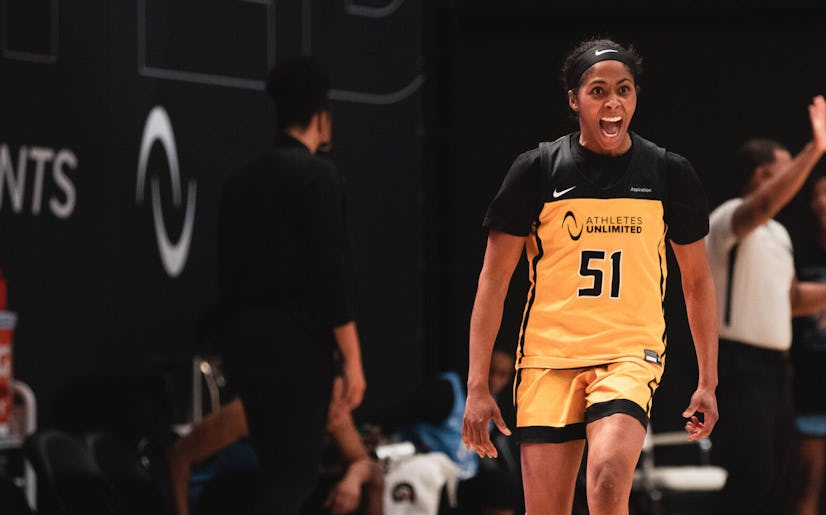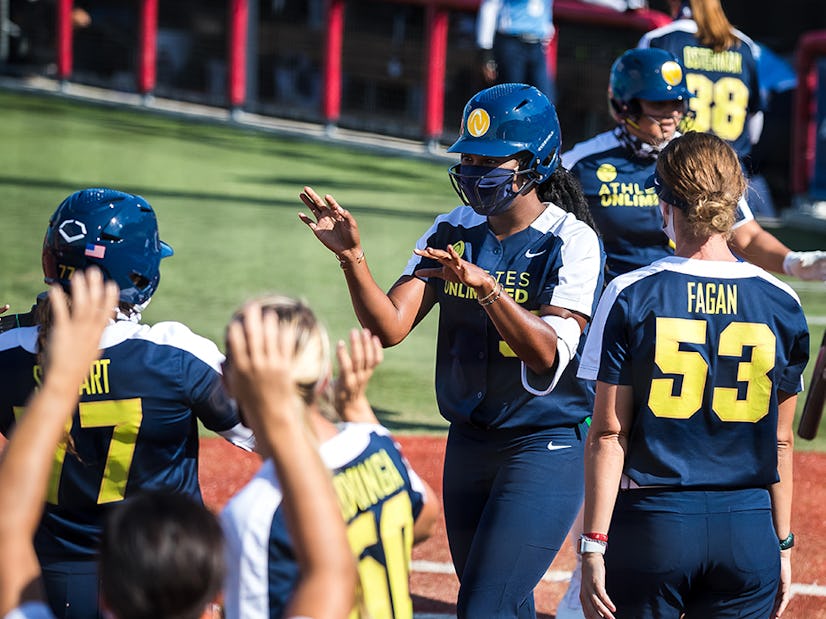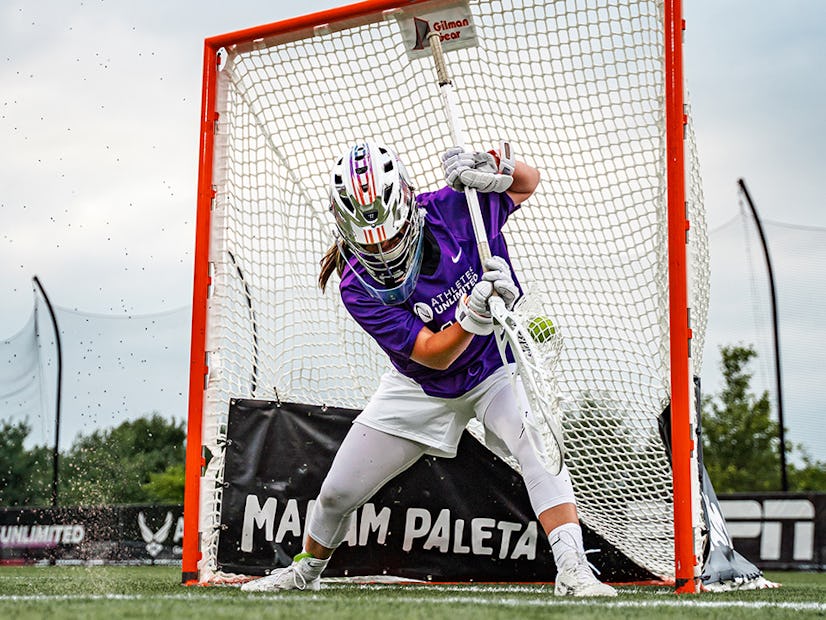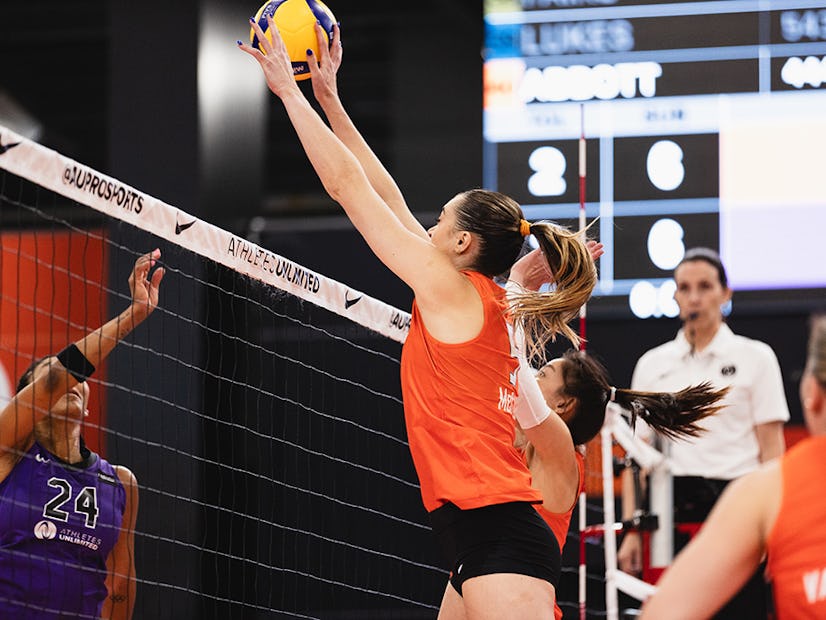
Appreciating the Creator's Game
Learning about the game that has become a massive source of community, mentorship and opportunity
Introduction
One of our nation’s mottos, e pluribus unum, translates to “out of many, one.” It is a phrase that acknowledges our roots and highlights the strength that diversity cultivates. However, actions within America have unfortunately countered the words that are supposed to build pride in being a home to many cultures, people, and backgrounds. Many children are often raised in a bubble that reflects their own values, personal experiences, and beliefs, which inherently and unknowingly blinds them to other walks of life. Because of this, an integral part of growth is knowing one’s own culture and making an intentional effort to understand others. By recognizing that other cultures are just as valuable, intricate, and complex as our own, we can lead with a multifaceted knowledge base and more empathetic heart.
My Identity
As a kid, I grew up in an upper-middle class family in Orlando, Florida. I was very blessed to have the means to attend a Catholic school from kindergarten to eighth grade. My parents believed it was important to raise me in an environment that nurtured my faith. Whether it was at school or home, the people I was surrounded by played a large role in teaching me about religion and cultivating my faith. This experience largely shaped who I am today, and I still identify my faith as a central – if not the most important – part of my life and identity. However, when I reflect on this part of my life, I had very little experience with diversity. About ninety percent of the kids at my school were white, nearly all had two married parents, everyone was Catholic, and every student had the financial ability to afford a private school.
When I entered my town’s public high school, I experienced a completely new world. There were nearly three thousand students, and the population was a large mix of social classes, races, cultures, and backgrounds. I knew before high school that I was very blessed to be in the position I was, but I would consider this part of my life to be the first time I truly interacted with those who were significantly less fortunate than me. Nearly fifty percent of my high school’s student body received free lunch because they were unable to afford their own. I remember taking the bus home and noting the poor condition of some areas. Sometimes, I would feel guilty when I would get off at my stop and would take a mental note of how lucky I was.
High school also had a way of putting people into “their group”. For me, I was white, I was from a private school, and I was a lacrosse player. Those characteristics quickly influenced who I interacted with. The friends I made looked and acted very similarly to me. Looking back, I do not think I was scared to make different friends, but rather uncomfortable. I sought out opportunities and friends that made me feel like I belonged, which in turn enabled me to completely ignore other experiences and walks of life that could have taught me a lot. Being an athlete quickly became the foundation of my identity in high school.
My identity as an athlete was fostered from a young age. Growing up, I played several different sports and loved to be active, spend time outside, and compete with my friends. I eventually started playing lacrosse, which at the time was almost unheard of in Florida. With about two club teams in the whole state, the sport was new, exciting, and sparked a curiosity in me. I fell in love with it and began to learn everything I could about the game that has since become an integral part of my life.
I grew to recognize that an intriguing and commonly overlooked fact about lacrosse is that it is rooted in Native culture. When I was growing up, I would always hear it referred to as The Creator’s Game. Other Native references in the lacrosse world would also catch my eye, such as the Tewaaraton Award, which is college lacrosse’s equivalent to the Heisman Trophy. While some communities deeply respected and revered the true origin of lacrosse, others unfortunately coined it to be a “rich, white-kid sport.” It began to bother me, how did the sport that I’ve played for so long develop this reputation, and how do I not know more about where the game really comes from? Feeling curious and quite frankly a little embarrassed and disappointed in myself, I decided this project would be the perfect opportunity to learn about the game that has become a massive source of community, mentorship, and opportunity for me.
The Reference Group
In order to understand more about lacrosse’s origin and the people who cultivated it, I decided to interview Amber Hill, a former player at Syracuse University and current professional lacrosse player. Amber was the first indigenous woman to play in Athletes Unlimited, which is the newest women’s professional lacrosse league. She is also a member of the Haudenosaunee Confederacy, which translates to “the Original Peoples” and is more commonly known as the Iroquois. Ironically, Amber taught me that “Iroquois” is actually a vulgar and offensive term given to her people by the French, which is why they prefer to call themselves the Haudenosaunee. Given how often you hear her people referred to as this, I was shocked to discover the true meaning and weight it carries. I knew I had a lot to learn, but this fact jolted me into realizing how little I truly knew.
During our conversation, Amber told me about her upbringing on the Tuscarora reservation in New York, which is home to roughly 3500 residents. According to her experience, growing up on the reservation was far different than the average American childhood. From not having running water until she was a junior in high school to her father being one of nineteen children in his family, she found little in common with her peers when she went away to college. However, the initial lack of common ground with her teammates made her want to share her experience and educate others about her culture and roots of the game.
Many traditions in Amber’s culture revolve around lacrosse, which the Haudenosaunee believe was a gift given to them by their Creator (Haudenosaunee Guide for Educators, 2009). They use this gift to play medicine games, which are meant to scare the sicknesses out of their tribe and bring good energy to the people that they are playing it for. These games still take place today, and they often stretch over miles and miles of land rather than on the traditionally confined field that fans are used to seeing (Haudenosaunee Guide for Educators, 2009). The games serve as a way of acknowledging and appreciating where they as the Haudenosaunee people come from, and their culture values lacrosse as a way of learning lessons that their Creator has laid out for them. These ties to the game, knowing its intricacies, its roots, and where it originated has enabled Amber to build a strong foundation of appreciation for the game. She knows, understands, and appreciates why it is of value to her, and she has used that knowledge to deepen the respect that others have for the game of lacrosse.
After speaking with Amber, I realized that there are many aspects about her culture that are commonly overlooked. Their teachings, which Amber referred to as Gaiwiyo, are translated differently by strict traditionalists and more progressive followers. The Gaiwiyo is most easily equated to the Christian Bible, and some translations are understood as “the gift of lacrosse was given to the men”, while others are understood as “the gift of lacrosse was given to the people”. This differing opinion, understanding, and passing of their oral history has led to a disagreement within the Haudenosaunee people over whether women should be playing the game. Amber shared how her daughter’s father’s family disagreed with her decision to give her daughter a wooden lacrosse stick at birth, which is a common tradition for male Haudenosaunee newborns. She also noted the difficulty of representing her culture as the only current indigenous woman to be playing professionally while simultaneously knowing that some do not believe she should be playing at all. After hearing this, I developed an even greater appreciation for all indigenous women who play the game. I could not imagine being prevented from doing something that is so important to me simply because I am a woman.
Continuing with overlooked or unknown aspects of her culture, Amber spoke extensively about the struggle that plagued her people in residential schools across Canada and the United States. These “schools” were created when the Catholic and Anglican Churches worked with the Canadian and American governments to forcibly place Native children in facilities that punished them for speaking their native tongue, abused them emotionally, physically, sexually, and also required them to cut their long hair. They were a “systematic, government-sponsored attempt to destroy Aboriginal cultures and languages to assimilate [them] so that they no longer existed as distinct peoples” (National Centre for Truth and Reconciliation, 2021).
The overly harsh and abusive environment at the schools “deprived [indigenous children] of healthy examples of love and respect”, which Amber also noted in our conversation (National Centre for Truth and Reconciliation, 2021). She shared how it was odd and uncharacteristic of her father because he would very rarely say “I love you”, which likely spurs from trauma associated with the residential school experience. Additionally, she provided an extremely important perspective by highlighting how the schools were not eradicated until 1996, meaning that every single indigenous person alive today is either a survivor themselves or has an older family member who was a survivor of a residential school. For me, this was extremely heartbreaking and eye-opening. It shocked me to learn that the very Church I am a part of actively participated in such a dark piece of history that deeply hurt a significant amount of people. It proved to me that while I am currently learning about Amber’s native culture, there is always still more to research about my own.
Self-Reflection and Conclusion
As I mentioned earlier, my experience with Amber enabled me to truly appreciate the idea that other cultures are just as important and valuable as my own. It was inspiring to speak with someone who believes in their Creator just as strongly as I believe in my God. More importantly, it was motivating and humbling to explore her experience and connection to the sport we both love. Amber repeatedly mentioned how “it’s just different” when she picks up a lacrosse stick, alluding to the fact that the game is quite literally a part of who she and her people are. It made me realize how the people whose game I play have such a deeper connection than I ever truly realized. I now approach the game with a greater appreciation, respect, and reverence than I ever did. People like Amber remind me that lacrosse is much more than a sport; it is a game that teaches lessons, cultivates toughness, and builds resilience.
As a leader and counselor, I will use this experience as a reminder to be intentionally curious. Speaking with Amber allowed me to realize that deliberately having conversations with those who are different than us is the only way to truly understand other walks of life. While I can never fully know or understand what it is like to be of a different background or culture, speaking with those who are is the closest I can get to genuinely empathizing and understanding their experience. Doing so will allow me to build relationships that are trusting, respectful, and considerate.
Ultimately, I plan to share some of the things I have learned with my teammates and am proud to say that I have already started to do so. I hope that my newfound appreciation and admiration for lacrosse can be contagious, especially for younger players who have a lot of lacrosse ahead of them. In the long run, I am excited to have conversation driven by curiosity, intentionality, and a desire to learn about those I am serving with. Having these perspectives will enable me to serve as a mentor for those who need a different lens to look at life through, and I am grateful that Amber has ultimately provided one more for me.




